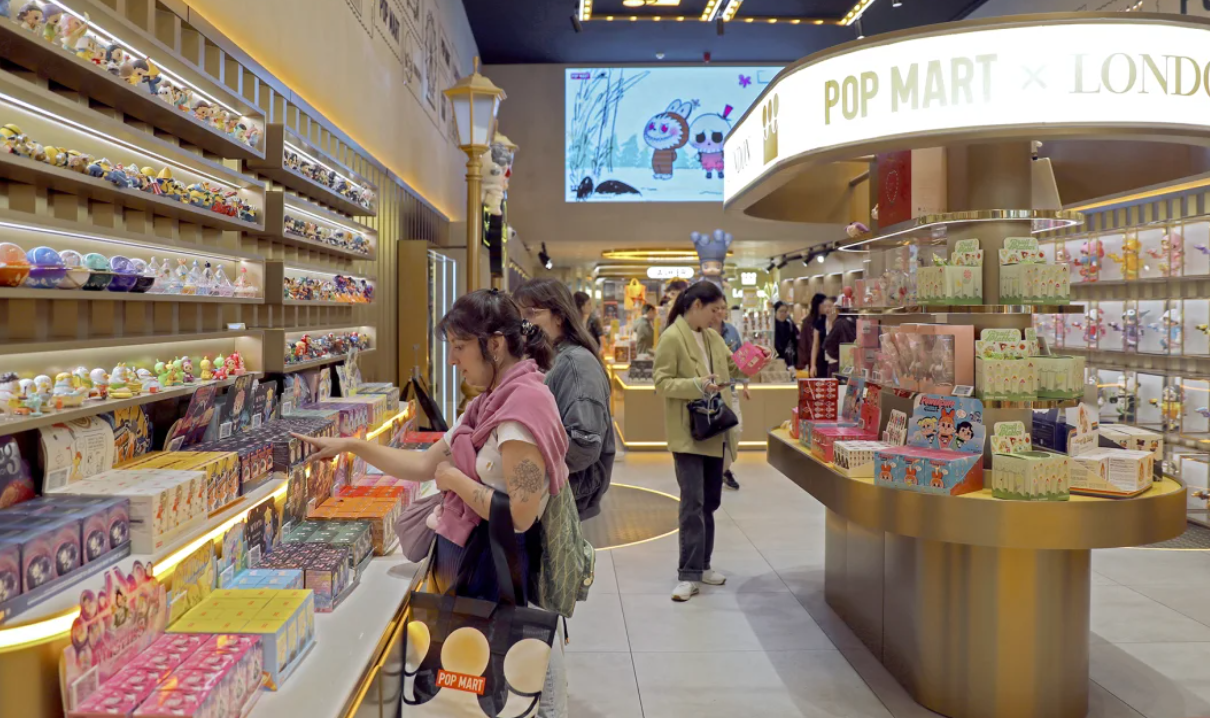Labubu, a palm-sized plush toy known for its mischievous smile and sharp teeth, has sparked a frenzy so intense that it’s no longer available in stores across the UK. After incidents involving massive crowds, long queues, and even fights breaking out, Chinese toy company Pop Mart has halted all in-store and Roboshop (automated store) sales of the toy.
“Due to the overwhelming demand for our beloved Labubus, we’ve witnessed increasingly large turnouts on restock days,” Pop Mart stated on Instagram. “To prioritize safety and comfort, we’re temporarily suspending in-store and Roboshop sales of THE MONSTERS plush toys.” Online sales will continue as usual.
Labubu, created by Hong Kong illustrator Kasing Lung, has been building a fanbase since its 2015 debut. But the quirky character — a blend of bunny and elf with both grotesque and adorable features — has recently exploded in popularity. Spotted with celebrities like Rihanna, Dua Lipa, and Lisa from Blackpink, and even featured at Paris Fashion Week, the toy has reached new heights of fame.
The numbers speak volumes: In 2024, Pop Mart’s revenue outside China surged by 375.2% to reach 5.07 billion yuan (about $700 million). Labubu alone brought in 3 billion yuan ($420 million) out of the company’s total 13.04 billion yuan ($1.8 billion) in revenue last year.
On TikTok, videos showcasing Labubu range from joyful unboxings to clips of store brawls, with the hashtag #Labubu appearing in over 1.4 million posts. Resale platforms like StockX show Labubu plushies being resold for hundreds of dollars — far above their typical $85 retail price.
Some videos highlight how extreme the obsession has become. In one popular TikTok post, a user warns others not to risk their safety for the toy, describing how people in balaclavas rushed ahead in line and verbal fights broke out. She recalled leaving quickly once things turned chaotic.
Retail experts suggest that Pop Mart’s decision might serve more than just crowd management. According to Sarah Johnson, head of a UK-based retail consultancy, halting in-store sales not only helps de-escalate the madness but also maintains the brand’s image and fuels hype through scarcity. “This move keeps the spotlight on the product and drives more interest online,” she said.
TikTok’s influence is a major factor, she added: “The platform acts like a 24/7 digital shop window with global reach. A viral video showing a rare toy find or a long queue can instantly trigger massive demand.”
The intensity of the Labubu craze was also felt by public figures. A former Love Island contestant shared on TikTok that she ended up in a physical altercation at a London Pop Mart store while trying to buy one for her cousin’s birthday. “She bought five — it’s insane,” she said, recounting the heated moment.
As Pop Mart temporarily closes its doors to manage the mania, Labubu’s cult status only seems to be growing — driven by viral content, celebrity attention, and a surge in demand unlike anything seen before.














